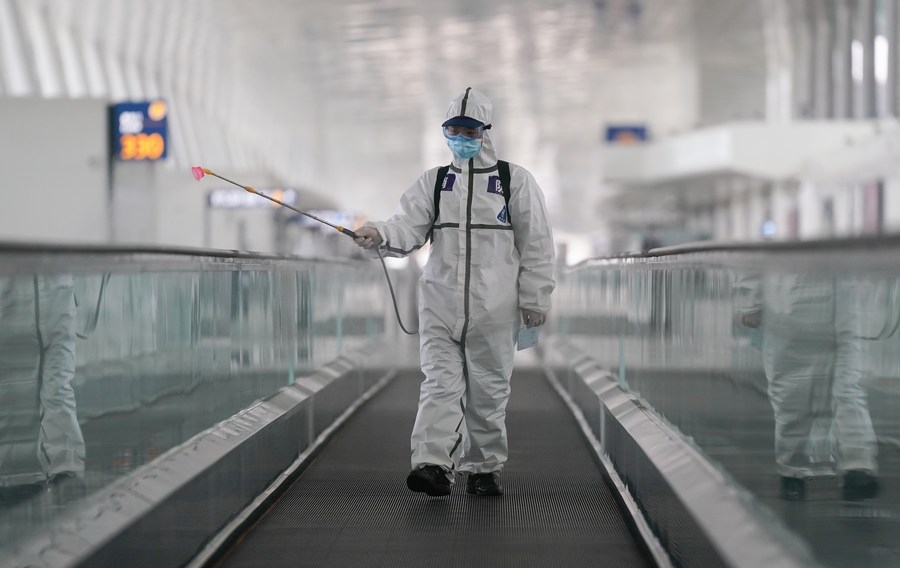China has denied entry to two members of the World Health Organization's (WHO) investigation team after they were found positive for Covid-19 antibodies. This is the second time that China has stopped WHO team members from entering the country after it had turned back two members last week.
The Wall Street Journal reported on Thursday that Chinese officials did not allow two members of the ten-member WHO team to board their plane to Wuhan–the epicentre of the deadly virus which spread globally in 2020. The other eight members have been allowed to proceed to Wuhan, where they will first undergo a 15-day quarantine before starting investigations into the origins of the deadly virus.
The coronavirus pandemic has infected nearly 92 million and taken the lives of close to two million people worldwide. The ten member WHO investigation team includes experts from the US, Australia, Germany, Japan, Britain, Russia, the Netherlands, Qatar and Vietnam. WHO has been wrangling with China over investigation into the origins of the Covid-19 pandemic, an issue which China has been stalling for months. The investigation now seems likely with months of negotiations between the international health body and Beijing.
The ten scientists and experts will be allowed to interview people from research institutes, hospitals and the wet market linked to the initial outbreak. WHO team leader, Peter Ben Embarek, told AFP news agency before the trip that it, "could be a very long journey before we get a full understanding of what happened. I don't think we will have clear answers after this initial mission, but we will be on the way." It is still not clear if the WHO investigation team will be allowed to visit the controversial Wuhan Institute of Virology (WIV), which many believe is the source of the coronavirus.
China detractors have called it the Wuhan virus, as they believed the virus jumped from a WIV lab. Many others think that the virus is man-made while Beijing has insisted that it was a natural virus that spread from the wet market of Wuhan after jumping from animals, most likely a bat, to human beings. Wet markets in China sell both live and slaughtered meat along with other fresh food items.
The coronavirus is believed to have spread in late 2019 in Wuhan – the capital of Hubei province, forcing Beijing to impose a severe lockdown on the people. A mega city of 11 million people, Wuhan lies on the Yangtze river and is the largest city in central China. Initially, China refused to share information but as the virus began spreading, it eventually alerted the WHO about pneumonia-like cases on 31 December 2019.
After keeping a watch on the spreading infection, WHO chief Dr Tedros Adhanom Ghebreyesus finally declared it a pandemic on 11 March 2020, by which time it had spread to over 100 countries across the world. As the virus began taking a heavy toll of lives and health systems, China began obfuscating the information about the source and the spread of the infection, often putting the blame on other countries.
Relations with countries like the US and Australia have deteriorated as they appealed for an investigation into the spread of the infection and called upon China to cooperate in the investigations. The World Health Assembly had called for an investigation into the virus in mid 2020, which was again opposed by China. Since then it has been resisting attempts at an international investigation, till now.




















